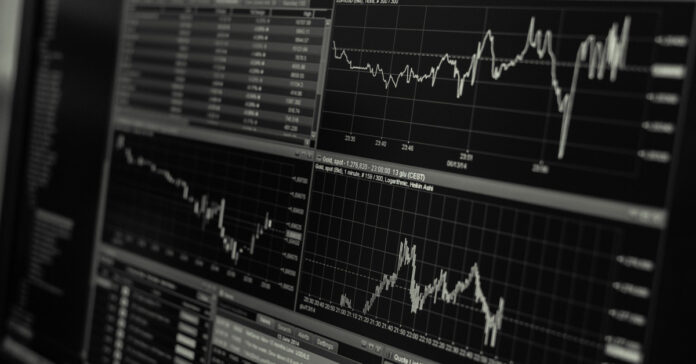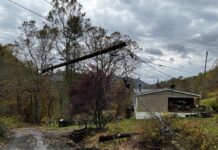When reading this post, please keep in mind that I am not a financial advisor or a financial expert. This article is not financial advice. I am just a prepper, and the following is my opinion based on my personal experience.
When my father retired in 1998, he told me he could retire early because his retirement savings had doubled in the prior three years.
How as that possible? Well, he had it invested in the stock market, which experienced what Ben Bernanke called “irrational exuberance.” The chart below shows how much the S&P rose each year from 1995 through 1999, along with the cumulative value for an initial $100,000 investment. (This number does not reflect taxes and fees.)
| Year | S&P Increase | Cumulative value of $100,000 investment |
| 1995 | 34.11% | $134,110.00 |
| 1996 | 20.26% | $161,580.68 |
| 1997 | 31.01% | $211,293.81 |
| 1998 | 26.67% | $267,645.86 |
| 1999 | 19.53% | $319,917.09 |
As you can see, his investments likely did double in value. Even if he left his funds in the same exact investments through the next three years of double digit losses, an initial $100,000 investment would still be worth more than $191,000. By the time the market recovered.
Bernanke made his “irrational exuberance” comment in December 1996. It took another three years before the dot-com bubble burst in March 2000 and we saw the NASDAQ plunge followed by losses in the S&P.
The S&P Continues to go Up
Twenty-five years later, the S&P still looks darn good, rising by double digits in four of the past five years, including 24.23 percent last year. The question investors face today is much the same as it was in the late 1990s: How long will this good thing last?
If people remain irrationally exuberant, it may well last a couple more years. When I look at the world around me, I wonder how anyone can be positive, not to mention exuberant, about the long term financial success of the country and the companies based here. But the S&P is up almost five percent year-to-date and just hit a record high on Friday. It takes exuberance, or at least some serious enthusiasm, to hit repeated highs.
Determining when to get out of the market is kind of like determining when to bug out. It is better to do so a week in advance than a day too late, but no one wants to do it a year early.
Then and Now
Back in the late 1990s, share prices rose because the Internet promised to revolutionize how work was done, making companies far more efficient. Efficiency meant more earnings, which justified higher stock prices. The problem was that many of the new companies built to utilize this new channel were burning far more money than they were making, and they could not sustain themselves. All but a few of the dot-com companies faded into obscurity, usually costing their investor’s millions. A few survived, like Google, Amazon, eBay, and Microsoft, and became household names.
Today, the promise that artificial intelligence will change how we work and make businesses more profitable is pumping up the markets. But instead of coming from start-ups who are short on cash, the leaders in AI include some of our largest companies, including the aforementioned Microsoft and Google. Because these are already profitable companies with deep pockets, perhaps the AI bubble won’t burst, or at least not burst for some time.
Betting on Stocks Versus Casinos
I used to go to casinos several times a year. It started when I lived in New York City and could jaunt down to Atlantic City. Later, I would gamble when I attend trade shows in Las Vegas. Then riverboats started to pop up and you could gamble in the middle of Indiana and other unexpected locations.
In the 1980s, I would take a cheap girl to Atlantic City where we would get a cheap room, eat at cheap buffets and quickly lose our money at blackjack or lose at roulette more slowly. Then we’d walk up and down the boardwalk and watch people, which is what you do in Atlantic City when you are broke.
By the 1990s, I was a more seasoned gambler. I read books on gambling and learned the odds and betting progressions. Based on what I learned, I gave up on blackjack and focused on craps and played some baccarat. I always tried to make smart bets where the house had the lowest odds of winning. I also tried to bet with the trend rather than against it. When I won, I would pocket my winnings and leave. When I lost, I would cut my losses rather than chase them. It took discipline, but I was successful enough that I occasionally had to pay taxes on my annual winnings. Did I come out ahead over my gambling career? Nah.
Now I don’t gable at casinos, just in the stock market. Of course, the odds are higher; I’m betting my life savings. So far, I’m still ahead.
Cautious Investing
At some point in my career, my 401k had $160,000 in it. That was enough to make me decide I should pay attention to my retirement planning rather than ignoring it. Just as I studied gambling, I studied investing. I read books on the subject, consulted experts, and watched the markets. Now I diversify my financial investments and rebalance my portfolio from time to time. Does this help? Yes. Does it make me an expert? No. All I am trying to do is minimize my losses and make sure I don’t get wiped out. I occasionally pick an industry or sector I think will do well and look for a mutual fund or ETF that tracks it. Sometimes, I try to time the markets. I’ve learned it is easier to know when to get out than it is to predict when to get back in.
Most of the time, I’m just riding the trend. As long as the S&P goes up, I’m good. On Friday, the S&P set a record, surpassing the 5,000 mark. So I’m good, at least until the markets open on Monday. What happens next? No one knows. That’s why I compare it to gambling. Never forget that even hot streaks come to an end.
It’s a Game, Know the Rules
Do I think preppers should be in the stock market? Yes, with their retirement savings *(assuming retirement is some distance off), but not with the money you are saving for a house or a retreat.
Like gambling, investing is a game, and you will do better if you know the rules. Here are a few basic rules I tell my kids and other investors who have decades before retirement:
- If your employer offers a retirement program, participate in it even though it reduces your take home pay. (It also reduces your taxes.) It’s like the lottery people say, “you gotta be in it to win it.”
- If your employer matches funds you put in, make sure you are contributing enough to get the maximum match. The match is like getting free money, and it is also tax free. That’s a double-win.
- If you have money in a 401k, a 403b, an IRA, or other retirement plan, pay attention to it. Know what you are invested in and why. Consider getting some professional advice, even if it is just talking to someone at the company that manages your employer’s accounts.
- And when you leave your employer, have your financial advisor or a company like Vanguard or Fidelity transfer your 401k into an IRA so you have more control over your investments.
- The money you save today will determine how you live tomorrow. So save as much as possible.
I consider investing for retirement to be a form of prepping, even if it is a long-term prep. When you prep, you are betting that the world as we know it will come to an end. When you invest for retirement, you are betting it won’t. Why not cover both bases?
Video of the Day
The following video is unrelated to the stock market, but if you live in a city and stack hundreds of ounces of silver, it raises a valid point.








